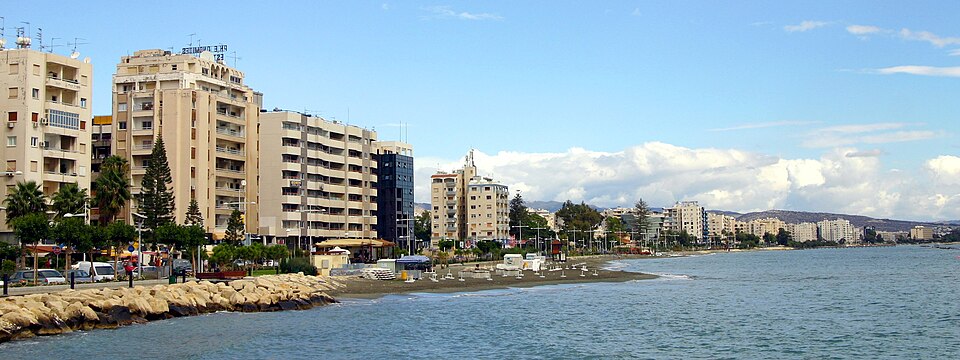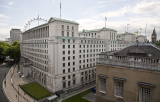
The eighth anniversary of the publication of the Paradise Papers is approaching — a database that helped uncover the secrets of capital movements and the
operations of many legal and business structures. To this day, the database holds many secrets that help to understand modern economic and political events in Europe. Most investigators who want to understand the mechanisms of Russia’s influence on Europe’s life must, of course, turn to the history of Cypriot companies’ activities.
Russian businessmen have cultivated connections on the island for decades and have always preferred to operate within this jurisdiction rather than in other countries of continental Europe. Let us recall what the data leak known as the ‘Paradise Papers’ represented.
Paradise Papers
The Paradise Papers refer to a collection of more than 13.4 million confidential electronic documents related to offshore investments. These files were leaked to German journalists Frederik Obermaier and Bastian Obermayer from the newspaper Süddeutsche Zeitung.
The newspaper collaborated with the International Consortium of Investigative Journalists (ICIJ) and a network of over 380 reporters to analyze the data. Portions of the documents were first made public on November 5, 2017, and further reports have continued to emerge since then.
The documents originated from the law firm Appleby, corporate service providers Estera and Asiaciti Trust, and business registries spanning 19 tax jurisdictions. They include information on more than 120,000 individuals and companies. Among those mentioned are AIG, then-Prince Charles, Queen Elizabeth II, Colombian President Juan Manuel Santos, and U.S. Secretary of Commerce Wilbur Ross.
The publication of these materials led to international scandals, lawsuits, and resignations involving some of the individuals named. Additionally, legal actions were taken against media outlets and journalists who reported on the leaks.
Background
On October 20, 2017, an anonymous Reddit user hinted at the existence of the Paradise Papers. Later that month, the ICIJ contacted the offshore law firm Appleby with claims of possible misconduct.
In response, Appleby stated that some of its data had been stolen during a cyberattack the previous year and denied any wrongdoing. Once the documents became public, Appleby asserted that there was “no evidence of wrongdoing,” emphasizing that it is “a law firm which advises clients on legitimate and lawful ways to conduct their business” and that it “does not tolerate illegal behavior.”
Understanding the Paradise Papers
More than half of the leaked files came from a single offshore law firm, Appleby, based in Bermuda. These documents included loan agreements, financial statements, emails, and trust deeds. The leak also contained around half a million files from Asiaciti Trust in Singapore and roughly six million records from company registries across 19 offshore jurisdictions known for financial secrecy.
One of Appleby’s largest clients, Glencore PLC (GLCNF)—the world’s biggest commodity trader—was revealed to have funneled millions of dollars through tax havens. Glencore was also involved in currency swaps exceeding $25 billion and issued a $45 billion loan to Israeli billionaire Dan Gertler, a close associate of the President of the Democratic Republic of Congo, in return for his help securing government approvals.
The investigation was conducted by the International Consortium of Investigative Journalists (ICIJ) in collaboration with 95 media organizations across six continents. Their findings were first published on November 5, 2017, with additional revelations continuing to emerge over time.
Other major disclosures included:
- Investments in Meta (formerly Facebook) and Twitter (now X Corp.) tied to firms owned by the Russian government.
- U.S. Commerce Secretary Wilbur Ross’s investment in a shipping company connected to Russian President Vladimir Putin.
Limassol has traditionally been a place of residence for many Russian emigrants and the businesses associated with them. Some office spaces or centers house entire clusters of companies conveniently located next to each other, sharing common business interests or a pro-Russian orientation.
One such building is an office center located in Limassol at Lara Court, Arch. Makarios III 276. The building is known for housing Tokentrust Holdings Ltd, a company sanctioned by the U.S. Treasury [1].
Also located here is an organization connected with Russia and Russian politics, Case Center, which studies, among other things, the motivation of Russians to sign military contracts, having conducted a sociological survey of 2,000 respondents in various regions of Russia [2].
A Russian connection can also be traced to the company Costas Tsirides & Co LLC, located at the same address. Alexandros Tsirides is closely associated with Russian lawyer Irina Loutchina, with whom he jointly works at HIGHOPTIONS SERVICES LIMITED (HE 347687), as well as at BGI Cyprus [3].
Apparently, the presence of a specialist in Russian law among members of the Tsirides family indicates the company’s interest in the Russian market. At the same time, Irina Loutchina is mentioned in the Paradise Papers as the director of Torville Universal Limited, registered in the Bahamas [4].
Irina Loutchina’s partner in the Bermuda-based company was a Belarusian citizen, Albert Larytski, who was accused of financial fraud. According to the investigation, the Belarusian businessman—who by that time had obtained a Swiss residence permit—took loans from Russia’s Sberbank under false contracts supposedly for purchasing equipment to modernize a plant. However, the funds received were transferred to his personal account at the very same Credit Suisse bank [5].
Irina Loutchina appears in Polish government documents as one of the executives of the sanctioned company EUROCHEM POLSKA Sp. z o.o. [6].
It should be noted that the development of sanctions packages against Russia must be accompanied by analytical and investigative work aimed at identifying connections between Russian business and politics, as well as understanding how these sanctions can operate and be made effective.
1.https://home.treasury.gov/news/press-releases/jy2204
2.https://case-center.org/ru/contacts](https://case-center.org/ru/contacts
3.https://bgiglobal-law.com/firms/bgi-cyprus](https://bgiglobal-law.com/firms/bgi-cyprus
4.https://offshoreleaks.icij.org/nodes/80095673
6.https://www.opensanctions.org/entities/NK-emwfaTLmb2gmMNJRLRGgrb;https://finance.yahoo.com/news/eurochem-group-reaffirms-adherence-compliance-123100189.html
Photo by Leonid Mamchenkov, Wikimedia commons.









































